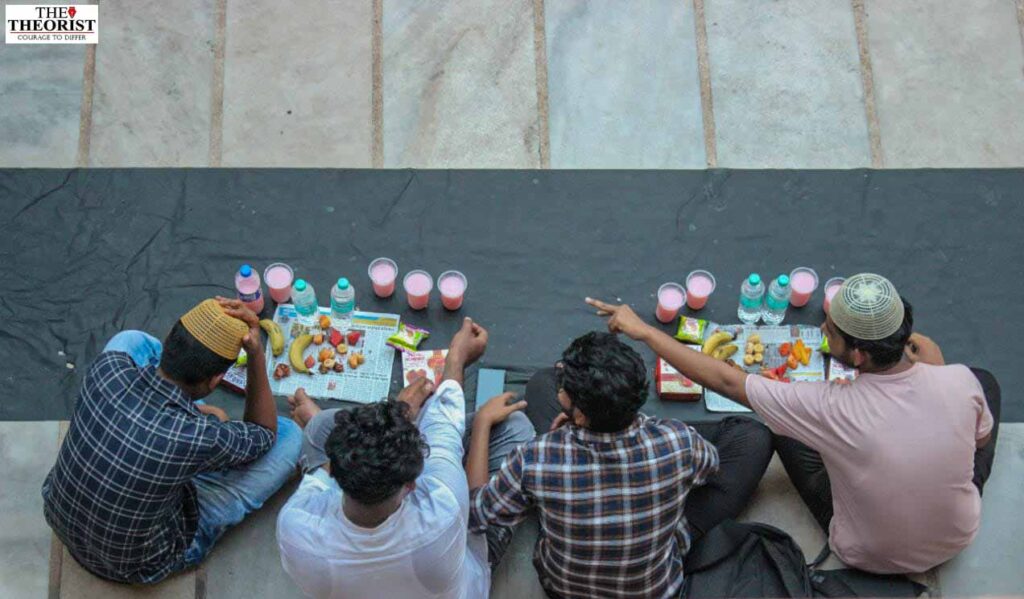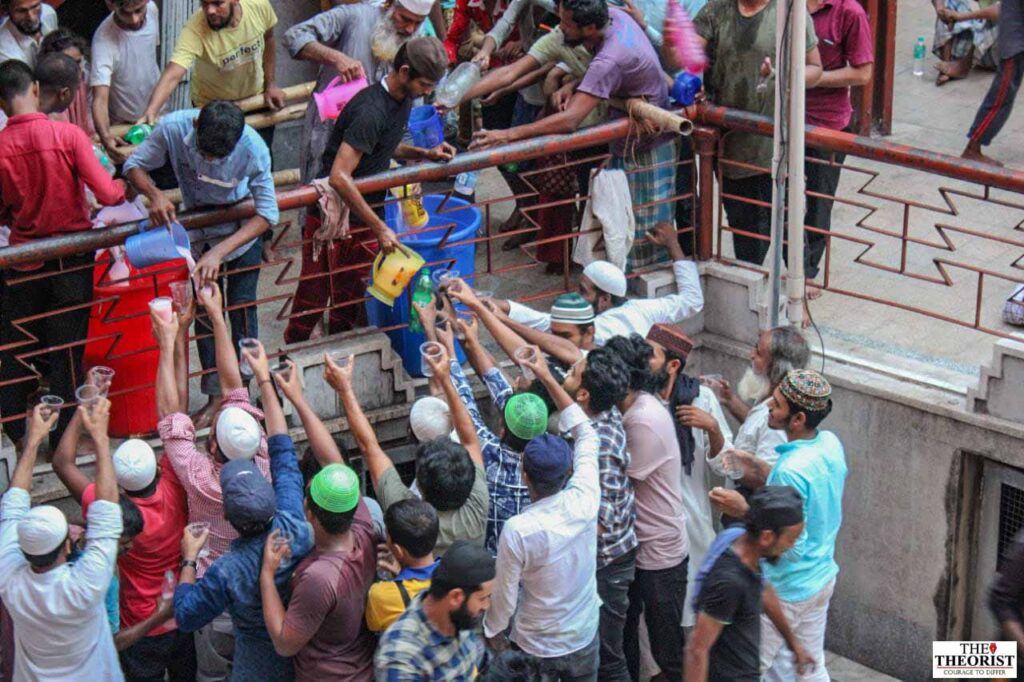Ramzan is the ninth month of the lunar Islamic calendar. The main reason behind the observance of Ramzan is to connect with God through prayers and almsgiving by fasting through the whole month.

Kolkata: Ramadan, or as popularly known as Ramzan in India and other parts of the world, is a holy month for Muslims around the world. Ramzan is the ninth month of the lunar Islamic calendar. The main reason behind the observance of Ramzan is to connect with God through prayers and almsgiving by fasting through the whole month.
Here’s how Ramzan helps in maintaining a healthy physical condition in the climate of India.
Firstly, an unhealthy eating routine in the midst of a busy year makes every person fall sick. So, fasting in the month of Ramzan amid a healthy diet detoxifies the body, keeps the metabolism in order and helps to reduce excess body fat.
Roza, or fasting during Ramzan, is very beneficial for the immune system. It rejuvenates the toxic digestive system and detoxifies the body. The Basal Metabolism Rate (BMR) is also improved as excess insulin and hormone growth does not enter the body from outside during the period of fasting.
The following is a list of what to eat and what not to eat during seheri (eating before dawn) and iftar (eating in the evening).
The dos
- Drink plenty of water, coconut water, fruit juice etc. which cools and hydrates the body.
- Include eggs, meat, milk, cheese, nuts etc. in your menu. Protein boosts energy and strengthens the immune system.
- There should also be carbohydrate foods like potatoes, sweet potatoes, corn, etc., which keep the stomach full for a long time.
- To keep the digestive system healthy and to avoid constipation, it is necessary to eat fibrous foods such as flour, oats, etc.
- Vitamins and minerals like dates, molasses, fruits and vegetables, etc. give the body the right balance. So this kind of food is very necessary during sehri and iftar.
- Try to break the fast with soup or dates. This is because dates contain a lot of fibre and help in relieving constipation.

The don’ts
- It is better to avoid spicy and extra fatty foods during fasting. This disturbs the proper digestive capacity of the body.
- It is better not to drink caffeine or carbonated drinks at this time. Because there is no drinking rule between sehri and iftar, suddenly drinking a lot of carbonated drinks will increase the effort and cause insomnia.
- It is better not to eat refined and packaged food.
In addition, if a person is undergoing special treatment and is observing Roza, he should make a list of foods in consultation with a doctor.
Fasting is considered as one of the five pillars of Islam. The month of Ramzan is celebrated for self-reflection, self-improvement, kindness and spirituality.
According to a health study, fasting during the month of Ramzan helps increase red blood cells (RCBs), white blood cells (WBCs), platelet count (PLT), high-density lipoprotein (HDL-c) and blood cholesterol, triglycerides, low-density lipoprotein cholesterol ( LDL-c) and also helps to reduce Very Low Density Lipoprotein Cholesterol (VLDL-c).
Intermittent fasting (IF) means that the glycogen in the liver is depleted and it becomes full due to not eating any food for 12-14 hours.
IF focuses on what to eat, what not to eat or what should be eaten instead and does not have a negative effect on the body and compromises with the quality or quantity of food.
In addition, it reduces the body’s excess sugar levels and boosts the immune system.
During fasting, the body undergoes autophagy, which is a self-cleansing process that removes dangerous and damaged particles from the body.
Therefore, a balanced and healthy diet is recommended throughout the month of Ramzan.
